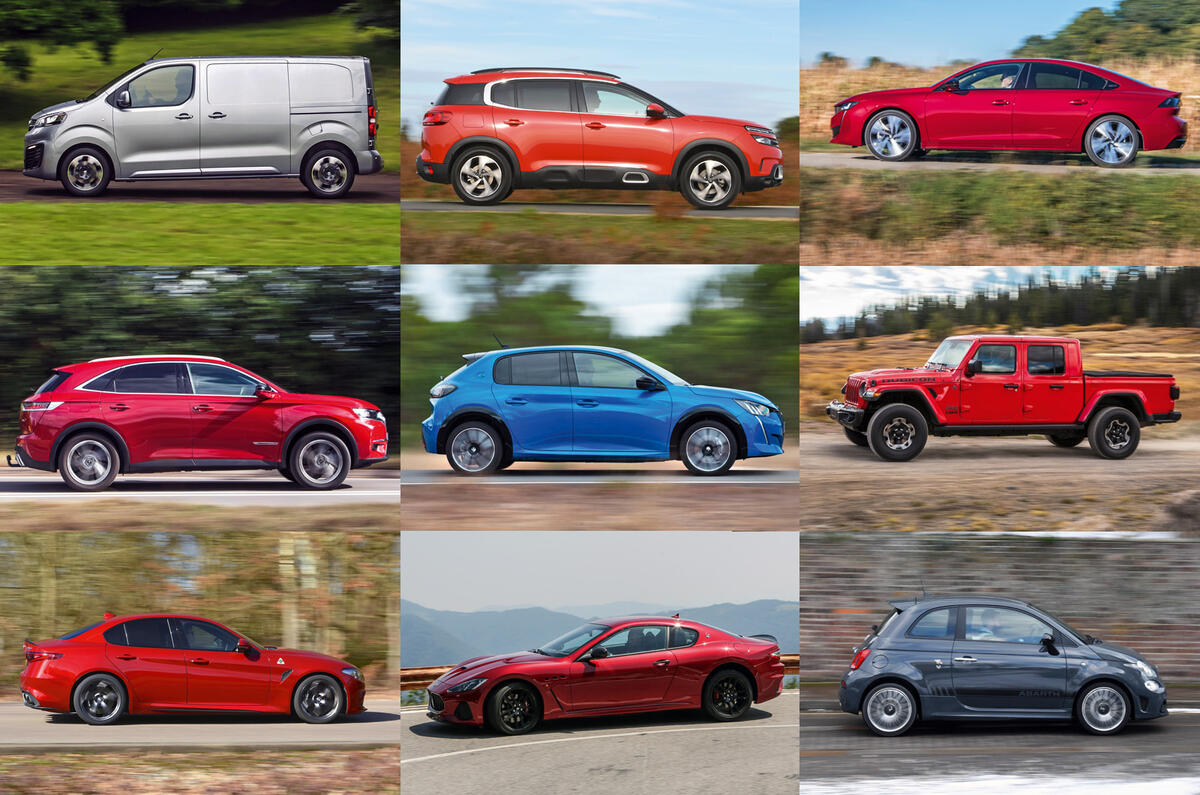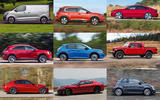The agreed merger between Fiat Chrysler Automobiles and the PSA Group will create the world’s fourth-largest car company based on sales.
The two European firms last week announced their intention to create a new entity owned 50/50 between the two but led by PSA’s CEO, Carlos Tavares. PSA will also appoint six board members against five for FCA, in effect giving the French company control over the decision-making.
The combination of the two will create a 15-brand automotive behemoth that together sold 4.2 million vehicles in the first half of this year, behind the Volkswagen Group, Toyota and the Renault-Nissan-Mitsubishi Alliance but ahead of General Motors and Hyundai-Kia, figures from Jato Dynamics show.

The company would be big enough “to capture successfully the opportunities and manage effectively the challenges of the new era in mobility”, according to a joint statement referencing the high cost of investing in new technologies such as EVs and autonomous cars.
Despite being highly profitable, FCA has been chasing a merger ever since its previous CEO, the late Sergio Marchionne, warned in his 2015 treatise ‘Confessions of a Capital Junkie’ that car makers had to consolidate in order to have any hope of controlling spiralling development costs. FCA have since been rebuffed time and again, most recently after talks with Renault collapsed earlier this year.
Now, just over a year after his death, Marchionne’s dream has been realised. By sharing technology and platforms and pooling other resources, the companies will eventually make combined annual savings of €3.7 billion (£3.2bn), the two said in a statement.
This figure could be achieved without shutting factories, the statement said – something PSA has proved it can do after successfully turning around GM’s loss-making Vauxhall-Opel division.















Join the debate
Add your comment
PSA/FCA merger..
Maybe Tavares is man to finally sell Alfa Romeo to the VW Group!
The article above refers to Maserati changing Porsche . . . . a rather un-ambitious objective, that has also been suggested for Jaguar.
+ + + + + + + + + + +
However, throughout the whole combined PSA-FCA conglomeration there is (still) not a recognisable, respected, manufacturer of “luxury” vehicles to challenge the German triumvirate of Mercedes, BMW and Audi.
The original Citroen “DS” would certainly have qualified for such a distinction.
Over recent years, several respectable large Citroen vehicles, and large Peugeot vehicles, have shared platforms and major mechanical assemblies (other than suspensions!!), with which to compete with the Germans. But the French - being French - always managed to include/incorporate one or two Gallic “nuances” that were often regarded as just too much, by the buying public (particularly in the USA).
When they acquired Chrysler (UK) Ltd, PSA decided to abandoned the established and respected English manufacturing name of HUMBER, which was/is/could again be, exploited as a luxury “marque”.
However, the HUMBER name, with all the Intellectual Property Rights associated with the company - and all its different model names - is now in Private ownership.
Even the most optimistic automotive Francophile, must acknowledge that it is a unrealistic and naïve ambition that the new, synthetic “brand” that is DS will ever be recognised as an international luxury “marque”.
Even after all the missed opportunities above, it would NOT be a surprise, if Taveres were to now sell Alfa Romeo . . . . the one name that the conglomerate have that could be exploited and expanded, to compete with the Germans. . . :( .
On top
Strange the company with 50% bigger revenue and a higher profit effectively end up the junior partner.
And yes as the article states FCA do struggle in Europe but then PSA is hardly a force in the US. Just saying.
xxxx wrote:
You BARELY managed to read the headline and call something STRANGE about it. Explain in detail EXACTLY what you mean by strange...you NEVER develop your silly posts, always do down those who know more and better than you...almost...no...absolutely EVERYONE.
Always repeating tranches (look it up) of the original piece, never any original input, then usual last words...if only..."Just saying" Tommyrot, balderdash, you are a FOOL.
Takeitslowly wrote:
What's you view on the merger then? Critical of others, but offer nothing yourself. All that time on Porn Hub fried your brain?